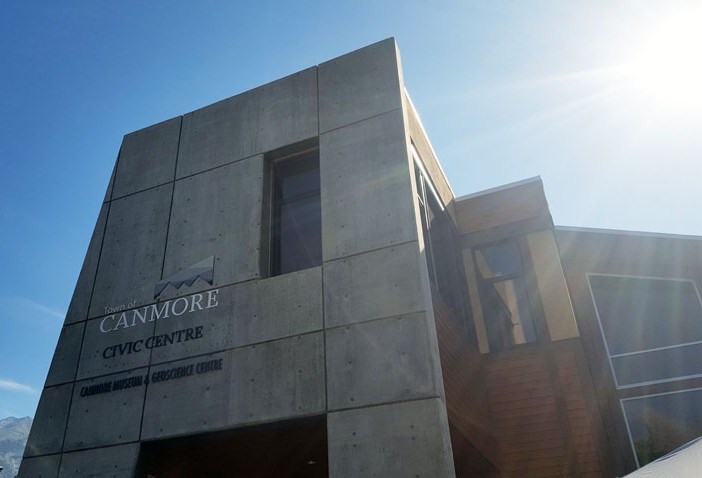CANMORE – Canmore and Banff’s quest to gain resort municipality status from the provincial government to help pay for critical infrastructure and services may have suffered a major blow after Calgarians voted ‘no’ to pursue the 2026 Winter Olympics on Tuesday night (Nov. 13).
When the unofficial results were tallied 171,170 people voted ‘no,’ taking 56.4 per cent of the final vote, while 132,832 people voted in favour of the bid. A total of 304,774 ballots were cast.
It effectively put an end to the bid for the 2026 Winter and Paralympic Games for Calgary and Canmore.
As part of the bid, the Town of Canmore’s Chief Administrative Officer Lisa de Soto was trying to negotiate resort municipality status for Canmore similar to what was done for Whistler in advance of the 2010 Vancouver Games.
She said Canmore wanted a two per cent additional levy on hotel rooms in the community to fund essential services and infrastructure needed to host the Olympics.
Finance Minister Joe Ceci was in the Bow Valley on Friday (Nov. 9) consulting with communities on the upcoming 2019 provincial budget.
Asked about resort municipality status for Canmore and Banff, Ceci said both Mayor John Borrowman and Karen Sorensen have been “really good advocates.”
“Both mayors have put their oar in the water around that and we are really focused on seeing how Calgary goes on the Olympic plebiscite next week, so it may be premature to make promises around anything,” Ceci said. “But we are always open to listening and understanding how mountain communities, or resort communities, or tourism communities can sustain themselves, though we are not prepared to make those decisions at this point in time.”
That being said, Ceci made it clear that his government is not interested in establishing any new taxes at this time – effectively ending the conversation on the additional two per cent hotel tax.
“I certainly was open to listening to people,” he said. “I shared with all the folks I heard from that at this point in time we are not thinking about new taxes.”
The province of Alberta continues to collect a four per cent hotel tax on all hotel room stays.
That money used to be funnelled to Travel Alberta, the provincial destination marketing organization, to support its efforts to drive visitation with a target of reaching $10 billion in visitor spending by 2020.
However, the Outlook learned that in 2015 the NDP government eliminated that funding connection, and instead the hotel levy now goes directly into the bank account of the province.
Minister of Tourism Ricardo Miranda confirmed the change at the Travel Alberta conference in Banff in October.
“That was changed in 2015 and again it is not necessarily a correlation of how much the tourism levy is allocated to Travel Alberta, when you look at all the other things we do to help support the tourism industry … we are actually trying to resolve that larger provincial impact,” Miranda said.
Asked about resort municipality status, Miranda was also hesitant to the idea of creating an additional tax.
“That is another option that has been explored,” he said. “What we are looking at is a combined approach and vision going forward that doesn’t tax for the sake of taxing, but actually understands where the money would go and be utilized.”
Asked if a portion of the already established hotel tax could fund resort municipalities, Ceci said he is open to listening to the needs of the community and that kind of feedback can be brought back to cabinet.
Canmore, Banff and Jasper have been pushing for resort municipality status for years as a way to support the additional infrastructure and services needed to support their tourism-based communities.
The three towns have even quantified how much more their taxpayers spend on tourism-based infrastructure and services than other communities in the province for successive ministers in cabinet.
The fact that municipalities can only generate revenue through property taxes and fees means property owners in each community are subsidizing the local tourism-based economy, while provincial and federal levels of government take 97 per cent of the revenues generated by visitor spending.
Even as Canmore council debated supporting the Olympic bid, Coun. Joanna McCallum put forward several unsuccessful motions that made it clear local politicians want resort municipality status now, with or without the Olympic Games.
“This was one of the reasons we went down this road to consider the Olympics – the ability to leverage this tool,” McCallum said. “This is the end goal in my mind.”




